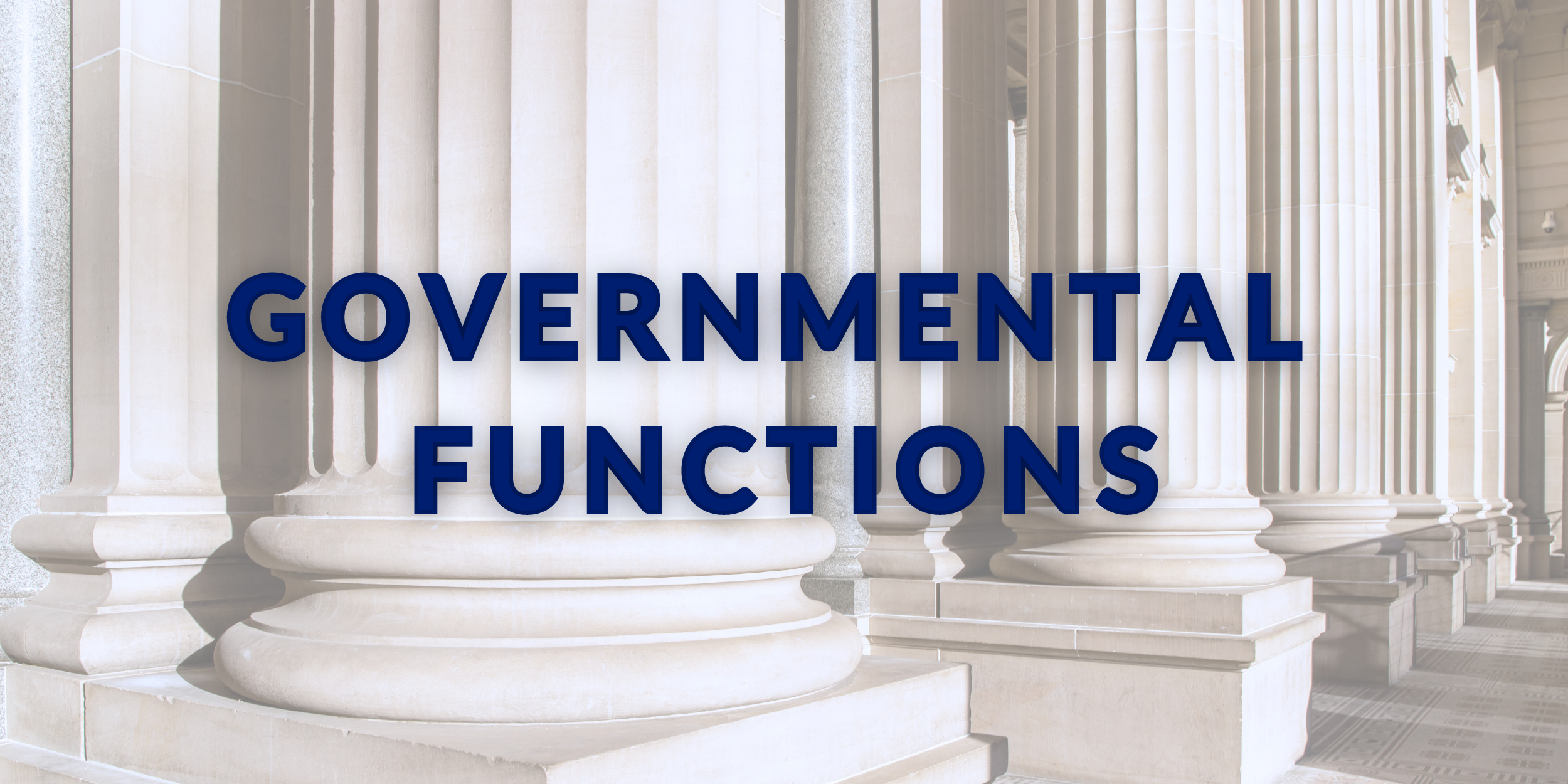I had the opportunity a couple months back to speak with Jefferson and USAID Africa Bureau staff on the policies prohibiting federal contractors from performing inherently governmental functions. It’s a topic that I spent some time wrestling with as Administrator of the Office of Federal Procurement Policy (OFPP) in the Bush and Clinton Administrations, but one that doesn’t seem to get much attention these days. It probably should get more. It’s at the nexus of the relationship between federal employees and private contractors and is central to the question of who is driving policy, the government or industry.
Companies like Jefferson that provide institutional/mission support assistance to federal agencies need to understand the reasons for the policy and how best to work as partners in carrying it out. Agency officials receiving this type of help, however, also need to understand the rules and the reasons behind them. Key questions for both parties are “what are inherently governmental functions and what’s the concern” as well as “how can government and industry work together effectively to meet mission needs within the construct of these prohibitions.”
OFPP Policy Letter 92-1 that I signed in September 1992 directly addressed the reasons for the policy, stating “Government actions should reflect the independent conclusions of agency officials and not those of contractors who may have interests that are not in concert with the public interest and who may be beyond the reach of management controls otherwise applicable to public employees.”
Congressional concerns were about such issues as contractors preparing Congressional testimony for agencies or for contractors drafting responses to Congressional correspondence, worrying that the contractors, not federal employees, would be driving the policy. In response to these concerns and complaints, Policy Letter 92-1 prohibited those activities and other actions creating similar concerns. These included, among other things, prohibiting contractors from determining federal priorities for budget requests, from awarding contracts or from taking other actions that would be seen as inappropriately binding the government. These specific prohibitions continue to apply today and can be found in Part 7.5 of the Federal Acquisition Regulation (FAR). This Part also includes a list of activities such as supporting acquisition planning that, while not inherently governmental, require careful review and management oversight by agency staff.
While Policy letter 92-1 provides lots of prohibitions, it also makes it clear that inherently governmental functions don’t normally include contractors providing advice, opinions, recommendations or ideas to Government officials or include functions that are primarily ministerial in nature. And while various activities are clearly identified in FAR Part 7.5, there is no bright line test that you can automatically use to determine what activities should or should not be proscribed. As a result, if an activity is not listed, agency staff, understanding the reasons for creating the prohibitions, would have to make their own decision on what role a contractor should or should not play. What’s most important here is that both parties understand what the rules are and can agree on and explain how their activities fall within them.
A subsequent document in 2011, OFPP Policy Letter 11-01, expanded on this coverage and added “Critical Functions” to the mix, stating that functions “necessary to the agency being able to effectively perform and maintain control of its mission and operations” should be performed or managed by federal employees. This addition responded to criticism that agencies in some cases lacked the internal capability to review and effectively respond to advice they were receiving from contractors. In this case, since “Critical” is based on the key mission of the agency, functions considered “Critical” could differ among agencies. For example, it could well be important that a meteorologist in the National Weather Service at NOAA be a federal employee while in other agencies a contractor could easily play that role.
In addition to expanding on the earlier restrictions, the new policy document directed agencies to review service contracts on a regular basis to ensure that the agency was managing these issues closely and was not employing contractors to perform inherently governmental work. An important point here is that while these policies were put in place some time back, they have not been forgotten. For example, in January 2024 the Government Accountability Office (GAO) issued GAO Report-24-106312 titled “VA Acquisition Management: Oversight of Service Contracts Needing Heightened Management Attention Could Be Improved.” In this report, GAO criticized the VA for failing to adequately oversee and manage its service contracts along the lines required by the 2011 Policy Letter.
For reasons then of effectively carrying out the policy and for ensuring that outside reviewers acknowledge that compliance, contractor and government staff should fully understand the policy, the reasons behind it and their respective roles in carrying it out. The best path here is for them to partner in meeting agency mission needs while being able to describe how each of their actions fits well within the inherently governmental construct.
If you have further interest in this topic, Jefferson has a half-hour training program on inherently governmental functions and how best to address the policy.
About the Author
Dr. Allan Burman is President of Jefferson Solutions, the government services arm of Jefferson. His distinguished government career included serving as the Administrator for Federal Procurement Policy in the Office of Management and Budget. He holds a Ph.D. from George Washington University, a Master’s degree from Harvard, and a Bachelor’s degree from Wesleyan University. To contact the author or learn more about Jefferson’s solutions, please email contact@jeffersonsg.com.
